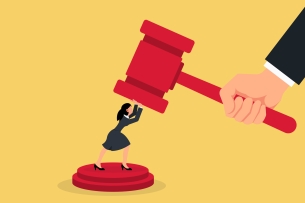Filter & Sort

Transforming Challenged Academic Units
When a unit becomes dysfunctional, leaders may recognize the problem but not know where to begin to resolve it, write Jacob J. Ryder, C. K. Gunsalus, Elizabeth A. Luckman and Nicholas C. Burbules, who offer specific approaches that can help.

Partnering to Train Ph.D.s to Teach
Jonathan Shapiro Anjaria and Nicholas Papas describe the powerful synergy that can occur between scholarship-oriented students at universities and community college faculty with practical teaching experience.

The Need for Federal Support of STEM Training
Congress should fund professional development for grad students and postdocs to enhance our nation’s global competitiveness, and university administrators should advocate for such legislative appropriations, writes Adriana Bankston.

Who Is a Faculty Peer?
Breda Eubank, Irene Shankar and Mary-Lee Mulholland explore the potential bias in so-called peer evaluations of teaching.

Can Grad Students Defend Us Against Misinformation?
Yes, if they communicate with the general public, not just other academics, and prioritize becoming camera-ready, writes Betty S. Lai.

What Happens When You Think Too Much?
How can you learn to settle down your runaway thoughts, Victoria McGovern asks, so you can focus on doing work you need to complete your graduate degree?

Getting the President-Board Relationship Right
It is one of any president’s most important tasks, write Julie A. Peterson and Laurie Fenlason, who offer 10 best practices.

Enhancing the Faculty Role in Student Career Readiness
Embedding career learning in the classroom is the most effective way to reach and expand opportunities to all students, write Karrin E. Wilks and Niesha Ziehmke.
Pagination
Pagination
- 40
- /
- 429